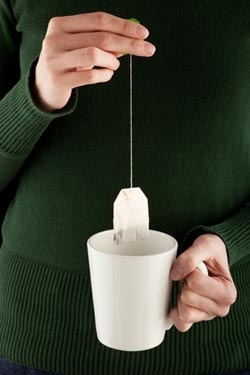beverages
Tea Marketers Should Focus On Kids, Parents
- by Tanya Gazdik , June 26, 2014
Families have emerged as a key tea demographic due to increased use of instant and ready-to-drink tea, according to Packaged Facts.
demographic due to increased use of instant and ready-to-drink tea, according to Packaged Facts.
Growth in the tea market is projected to reach $25 billion by the end of 2014, and will depend heavily on the ability of food manufacturers and marketers to connect with children and their Millennial parents, according to Tea and Ready-to-Drink Tea in the U.S.: Retail and Foodservice, 5th Edition.
In order to fully leverage the family demographic, marketers must tap the influence of kids in terms of product and brand selection, says Packaged Facts analyst David Morris, the author of the report.
“We don’t see tea companies targeting Millennial moms enough, and they should,” Morris tells Marketing Daily. “Hot teas may have opportunity here. Making brands appear less old-fashioned is critical, as is weaving marketing into social media, which these days impacts almost everything a Millennial mom does/buys.”
advertisement
advertisement
According to Packaged Facts’ February/March 2013 Food Shopper Insights Survey, two-thirds of grocery shoppers with children agree that their kids’ preferences influence which groceries they buy. To win over the kids, ready-to-drink tea varieties are key to leveraging convenience.
For example, liquid concentrates offer the opportunity to retain convenience, yet give kids the power to control their flavors and “play” with their beverage. At present, teas aimed specifically at kids and teens are underrepresented. Foodservice operators could also use tea as a better-for-you beverage in lieu of soda as part of kids’ meals.
Tea marketers can win over the parent demographic by positioning tea as a replacement for alternative beverages. This means leveraging tea’s healthful properties and perhaps even juxtaposing these attributes against other popular sugary kids’ beverages (such as sports drinks and soda), all the while underscoring ethical farming and production practices.
“It's a healthy drink, so that's an important strategy in getting parent approval,” Morris says. “To help shake any stigma that tea is boring, hybridization might help bridge the gap, like a sparkling tea.”
Tea marketers must also harness the powers of the internet, social media and the
blogosphere when specifically seeking to connect with Millennial moms. Technology impacts almost everything a Millennial mom does and buys for herself and her family—from online purchasing,
checking her Facebook page, or posting a photo and location on Instagram.
"Female Hands Holding a
Teacup and Teabag" photo from Shutterstock.




